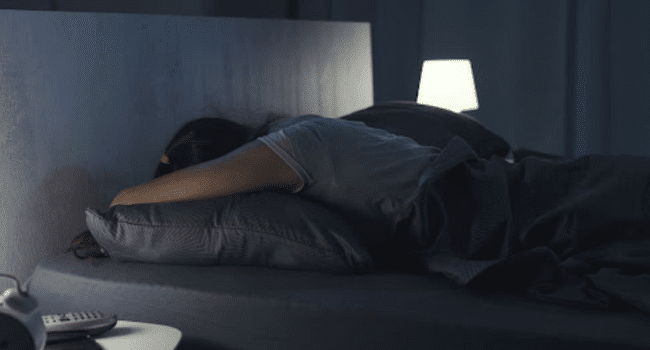Table of Contents
For most people falling asleep is a natural progression to the end of the day, and it comes easily to them. For other people, falling asleep at night is a challenge. It requires several fall asleep apps, melatonin and a handful of sleeping tricks.
If you fall in the latter group, you might have wondered why you can’t fall asleep when you should. Many things could be the reason for your sleeplessness, but in this article, we’ll be highlighting six.
Medication
Sometimes the reason you’re unable to sleep is because of the medication you’ve taken. Insomnia is often a side effect of many medications, especially medicines treating conditions like high cholesterol, ADHD, and nasal congestion.
If you’re on any medication attached to these conditions and have difficulty falling asleep, don’t hesitate to contact your doctor and let them know.
Inactive Lifestyle
Leading an active lifestyle is essential for heart health and healthy sleeping habits. People who lead sitting lifestyles are more likely to struggle with insomnia than active people.
Unhealthy habits from inactive lifestyles contribute to difficulty in sleeping. Some of these habits include waking up too exhausted to work out, ingesting too much caffeine, taking a nap during the day, etc. All of these habits further affect the sleep cycle. These behaviours can come together to form an unhealthy cycle that is difficult to break away from.
Active people exhaust their bodies for rest by nighttime and can get deep restorative sleep.
Sleep Disorders
An apparent cause of your inability to sleep at night could be an undiagnosed and
untreated sleep disorder. If you find it hard to take a nap or to stay asleep when you do, you might have a sleeping disorder.
The inability to sleep is a primary symptom of sleep disorder. Symptoms of sleeping disorders also include:
- Disruptive snoring;
- Continuous movement;
- Extreme morning fatigue after a night of sleep;
- Waking up too early.
Note that symptoms of sleeping disorders must have likely lasted a while and are not a result of jet lag or staying up a few nights.
There are more than 50 sleeping disorders, but the common ones are:
- Insomnia;
- Circadian rhythm disorders;
- Sleep apnea;
- Restless leg Syndrome.
If your symptoms persist over a long period, see a doctor for a diagnosis and therapy plan.
Terrible Sleep Environment
Your environment might be the cause of your insomnia. Noise, temperature, and light can affect your sleep environment and make it unconducive for sleep.
A brightly lit bedroom could inhibit the production of melatonin which helps you fall asleep. In the same vein, a noisy environment could affect your ability to fall asleep if you can’t sleep in noisy environments. Too low or too high a temperature can make falling asleep difficult.
You can make your room more sleep-friendly by including night lights, weighted blankets, and candles if you like. In addition, you can use sleep aid apps to relax and fall asleep faster.
Jet Lag
Jet lag disorder refers to a temporary sleep disorder that happens when people travel across different time zones. What causes the imbalance of jet lag is a misalignment between your current time zone and your body’s internal circadian rhythm patterned after the time zone you’re coming from.
The circadian rhythm is an internal clock patterned after our 24-hour clock. It controls sleep and other body functions using light as the eyes perceive. When you travel across several time zones, you experience jet lag because the internal body clock doesn’t align with the 24-hour clock of your present region.
Symptoms of jet lag include:
- Extreme fatigue in the daytime;
- Constipation and diarrhoea;
- Brain fog and inability to focus on work;
- Mood swings;
- Difficulty sleeping at night;
- Sleeping during the day.
In order to quickly cope with jet lag, try to drown out extraneous sounds while falling asleep. To do this, use the best white noise apps or earplugs. The symptoms of jet lag usually go away in a few days, but if yours doesn’t, you need to see a doctor. If you travel a lot, working with a sleep specialist is advisable to help you maintain healthy sleeping habits.
Depression and Anxiety
Depression and anxiety can induce sleep disorders. Coincidentally, you can also develop these mental health conditions from not getting healthy sleep for an extended period.
Treatment options range from therapy to medication if you struggle with mental health-induced sleeplessness.
Read more on KulFiy
Insomnia – Symptoms and Causes
Rosacea On Face: Symptoms, Causes, Remedies
Sleeping Tablets UK: Boon Or Bane?
